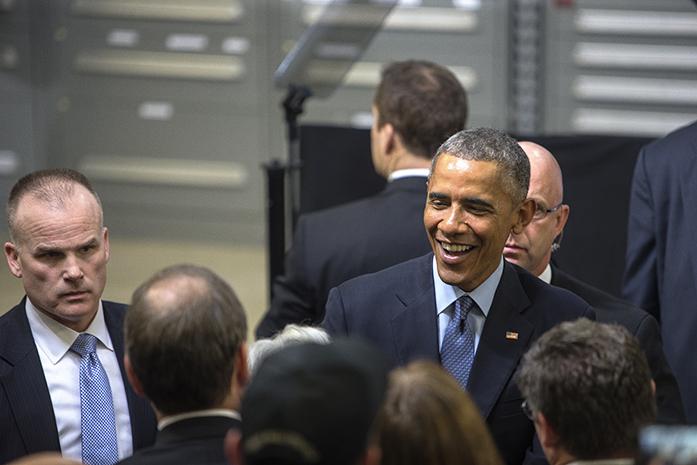President Obama is widely considered one of the most charismatic U.S. presidents of all time and one of the more charming public figures in the world today. Regardless of which side of the aisle you find yourself on in political debates, it is hard to refute that Obama simply seems like a real “people-person.”
However, when reviewing his eight-year tenure in the Oval Office, there is one person with whom Obama has never exactly gotten along well: Israeli Prime Minister Benjamin Netanyahu.
The relationship really came to a head when, during last year’s debate about what an Iran nuclear deal should look like, Netanyahu was invited by House Speaker John Boehner to address Congress after Obama explicitly requested Netanyahu not attend the session.
At the U.N. General Assembly this week, Obama gave his last speech to the U.N. and met with Netanyahu for what is likely to be the last time during his presidency. In the meeting, the two men smiled and shook hands, playing the role of amicable world leaders. But the façade was somewhat obvious — the men have never gotten along, and the strain on their relationship has long been apparent to the world.
Ignoring for a moment Obamacare, which is considered by some one of the greatest pieces of legislation in U.S. history and others the absolute worst, Obama’s relationship with Israel should go down as the worst component of his presidency.
There can be (and are) endless debates over whether Obama has handled partisan issues properly. But Israel is an issue that should not be partisan; the country is the United States’ greatest ally in the Middle East and plays an integral role in any change the U.S. hopes to make in the region.
And while the forward motion between these two countries should not rest on the relationship of the two people in charge, that certainly seems to have been the case, because Obama’s willingness to work with Netanyahu (and vice versa) has been minimal. The odds that major change comes in U.S.-Israel policy before January, therefore, seem slim.
According to CNN, Obama’s Deputy National Security Adviser Ben Rhodes had said he wouldn’t rule out the president making comments on Israel during the U.N. General Assembly but that “[the president’s] test has always been, ‘Can I make a positive difference by engaging on the Israeli-Palestinian issue?’ ”
But when Obama did address Israel in his speech, saying Israel cannot permanently occupy and settle on Palestinian land, he made a statement that does very little to make positive difference in either direction. Also saying Palestinians need to recognize Israel’s legitimacy, Obama’s discussion of Israel served merely to check another box in his final speech, it seemed.
Despite virtually ending his relationship with Israel by signing a 10-year, $38 billion military-aid package as a symbol of the strength of the alliance, Obama has made it clear to the world that the relationship can ebb and flow with the personalities of the leaders.
In the end, actions speak louder than words, so signing the $38 billion deal certainly indicates the strength of the U.S.-Israel alliance but Obama’s tumultuous relationship with Netanyahu cannot be ignored.
World history is wrought with personal issues affecting political outcomes. As America prepares for its next president and issues in the Middle East escalate, voters should hope that the next administration has a leader who gets along well with Israel. It should not be an issue, but Obama (by showing what not to do) has proven just how important it is.



